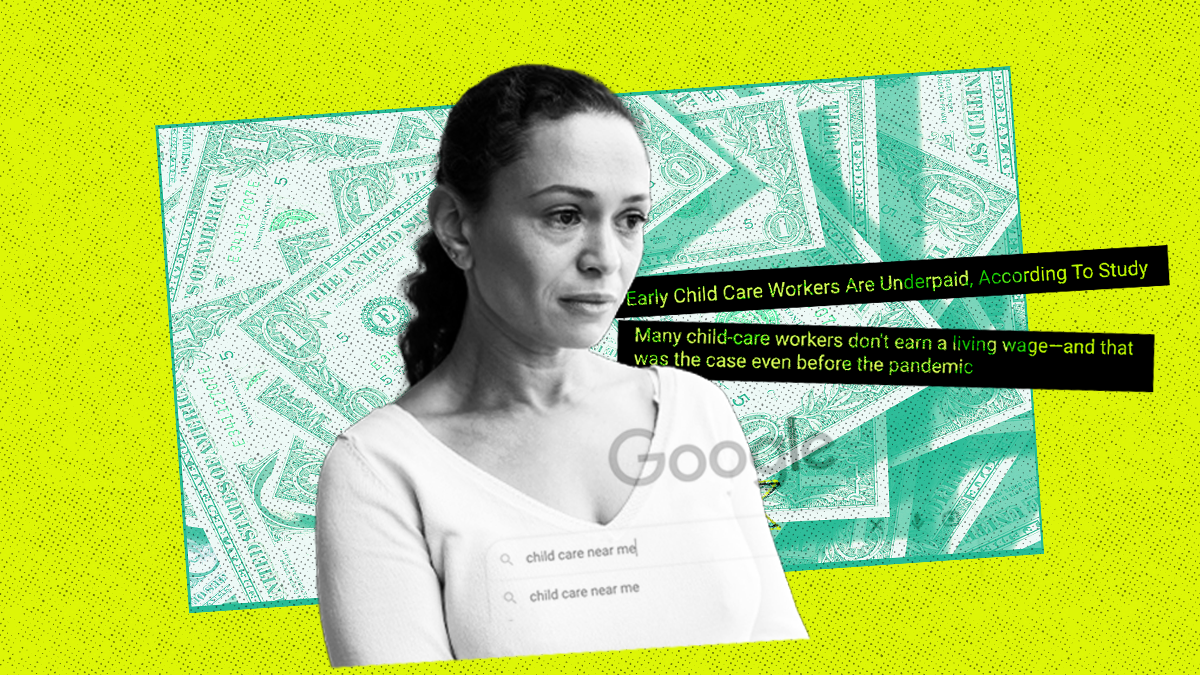Four Areas in the Biden Budget Plan That Support an Equitable Recovery

While the nation is starting to turn the corner from COVID-19, many women of color—and women generally—continue to struggle. Though the overall unemployment rate is declining, women of color continue to be unemployed at higher rates and nearly two million women have completely dropped out of the workforce since February 2020. The health and economic impacts of the pandemic are likely to be long-lasting. COVID revealed and exacerbated deep, longstanding structural flaws in our economy and systems, including racial and gender wage gaps, overrepresentation in poorly paid jobs, lack of caregiving supports, and disproportionate lack of access to health insurance and health care. Without further action, these structural flaws will continue to undermine women’s economic security long after the pandemic has ended.
Earlier this year, the Biden administration released the American Jobs Plan and the American Families Plan. Last week, the Biden Administration released its Fiscal Year (FY) 2022 budget proposal. The budget proposal gives us more details about how the administration plans to structure historic investments in women and families and raise additional revenues to support those investments. Overall, the proposal centers women in an equitable recovery, including by eliminating the Hyde Amendment and the DC abortion ban.
Here are four areas in the President’s budget that advance racial and gender equity in recovery:
1. Child care and early learning
The President’s budget proposes $450 billion for child care and early learning, with elements from the American Jobs Plan (AJP) and the American Families Plan (AFP). The AJP included $25 billion to upgrade child care facilities and supply. The AFP included $200 billion for universal pre-k and $225 billion for child care. With respect to universal pre-k, the AFP provided that all employees in participating pre-K and Head Start will earn at least $15 per hour and other pay equity measures. For child care the AFP uses a sliding scale so many families would spend no more than 7% of their income on child care costs. The AFP also contains measures to invest in high quality child care, like a $15 minimum wage, job coaching and professional development, and training opportunities for child care providers.
The American Rescue Plan and 2020 COVID-19 relief packages provided a combined $50 billion in relief funding for child care and early learning and helped to save the sector from collapse. We are encouraged to see the Biden Administration again show their commitment to child care and early learning through the $450 billion for child care included in the budget. Building off this proposal, NWLC and partners are advocating for at least $700 billion in direct spending for child care and early learning to ensure an equitable economic recovery. We look forward to working with the Biden administration to build a comprehensive child care and early education system that works for our nation’s children, families, educators, and economy.
2. Housing
The President’s budget proposes increasing the U.S. Housing and Urban Development (HUD) budget by 15%, including strong down payment investments in fair and affordable housing. The budget proposes enough funding for 200,000 more renter households, including survivors escaping domestic violence or sexual assault, to access housing vouchers and expresses hope for working with Congress to fully fund the program so all eligible households can receive rental assistance. Single women who are renting are 1.5 times as likely to spend 50%or more of their income on housing than single, non-Hispanic men. Increasing rental assistance is critical to closing gender and racial affordability gaps. The budget would also increase homeless assistance grants, investments in building new homes for people with disabilities and seniors, fair housing funding, public housing funding, and more.
3. Expanded Refundable Tax Credits
The President’s budget proposal, consistent with the American Families Plan, extends the temporary expansions to the EITC for workers without children, Child Tax Credit (CTC), and Child and Dependent Care Tax Credit (CDCTC) that were enacted in the American Rescue Plan. While the budget makes the ARPA’s EITC and CDCTC expansions, and full refundability of the CTC, permanent, it extends the increases in the CTC’s value, including the additional increase in the credit amount for children under 6, only until 2025. Refundable tax credits benefit women of color, boosting families’ incomes to help make ends meet and stay out of poverty.
4. Raising Revenues for Investments in Women and Families
The budget proposal includes tax policies from the AJP and the AFP, which would raise additional revenues to invest in shared priorities like those listed above. Several of these tax proposals would roll back 2017 Trump tax cuts that benefited the wealthy and large corporations—at the expense of the rest of us. Making the wealthy pay their fair share increases racial and gender equity in the tax code and invests in an economy that works for women and families.
The Biden administration has laid out visionary investments that would make it easier for women and people of color to support their families, live with economic dignity, and have the opportunity for a brighter future—and its FY 2022 budget proposal reflects those values.




